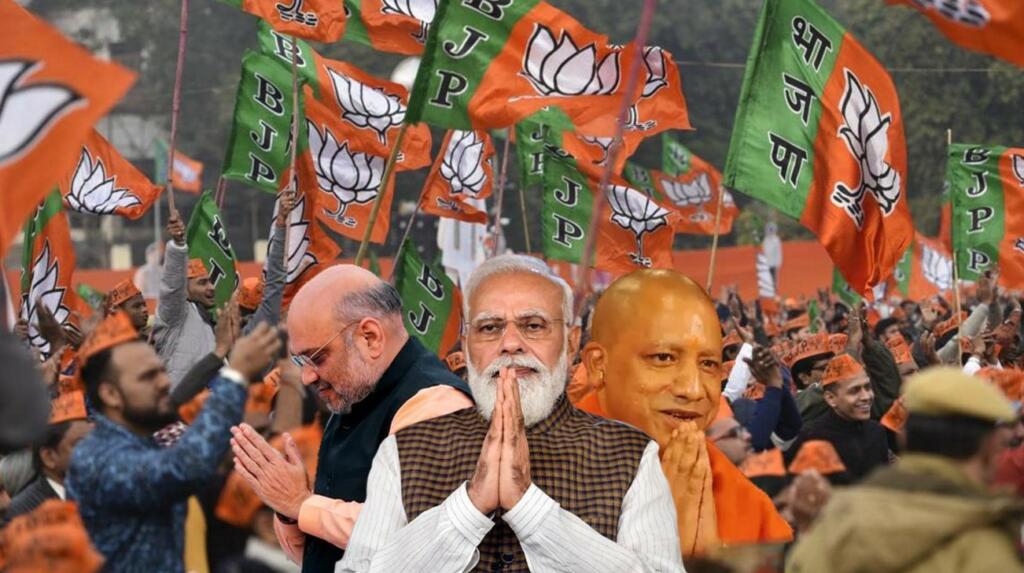With the party retaining all four of its ruling governments in recently conducted elections, BJP has firmly proved that it knows how to tackle the anti-incumbency wave.
Anti-incumbency – A constant in Indian politics
Anti-Incumbency has been a norm in Indian polity for a long time, but it is Modi’s pro-poor, pro-development, strengthening women voters and efforts towards achieving 100% saturation of welfare schemes that have worked wonders for BJP.
The success has forced political pundits to change their lexicons. The Pro-Incumbency wave has helped BJP win the 2019 General Election, the biggest among many other pro incumbent elections.
Anti-Incumbency did not work in recent elections
To understand its significance, we should look at the fact that no government has been re-elected in Uttarakhand since it achieved statehood. Similarly, no party has staged a comeback in Uttar Pradesh since 1985.
On the other hand, Goa has been ruled by BJP for a decade, which naturally gives birth to the anti-incumbency factor. Meanwhile, secessionist activities, blockade, armed insurgencies in Manipur were indicative of anti-incumbency feelings in the state.
Anti-incumbency as called by experts
- Incompetence or failure of implementation — BJP had committed itself to the last-mile delivery of welfare schemes to the poor and vulnerable section of society. So, even a slight failure in implementation was termed as representative of the whole.
- The country was hit by once in a century pandemic crisis and hence there was no definite and sure short way to tackle the crisis so the naysayers found points that required improvement
- Negative atmosphere was created by “Farm Law Protest” and smear campaigns were led to malign the ruling dispensation as Anti-Farmer and Pro-Cronies.
- In any functional non-utopian economy, there will be some unemployment and it’s mostly seen that they may be tempted to vote against govt hoping for a better prospect in the new regime.
- Opposition hyperbolised some unfortunate crimes like Hathras, Lakhimpur to brush away the visible, on-ground improvements in Law and order
- Change of guards at CM post in Uttarakhand didn’t reflect a good picture going into polls.
Also Read: 5 issues highlighted by the media that failed to stop Yogi’s ‘Vijayrath’
How BJP countered possible anti-incumbency factors
- During the pandemic, the ruling govt with proper scientific approach and planning managed to limit the losses and provided food grains to 80 crores people. It paid dividends to the government in elections.
- Schemes like KCC, Soil Health Card, Kisan Samman Nidhi, PM KUSUM, and many other schemes ensured that farmers did not fall for the opposition’s tune.
- Strong and inalienable voter base-In UP, the development agenda of the ruling party created a new voter base that transcended all regional, religion and castes equations.
- Transparency in recruitment, PLI schemes, Standup and startup India schemes and better track records compared to other non-BJP states and previous govts. made BJP first preference for youths.
- In Uttar Pradesh, common folks have seen the stark difference between SP’s goonda raj and Yogi led BJP’s bulldozing mafia properties
- In Uttarakhand, Dhami’s decisive policies and Modi Ji’s charisma overshadowed any grim possibilities.
Also Read: Modi-Yogi win is not only beneficial for BJP but also for the Indian economy
BJP under PM Modi has been anything but predictable. While experts were busy with their inaccurate prediction games, BJP was slowly making its way into people’s hearts. Common folks vote on welfare and not on those factors counted in AC cabins of TV channels.
